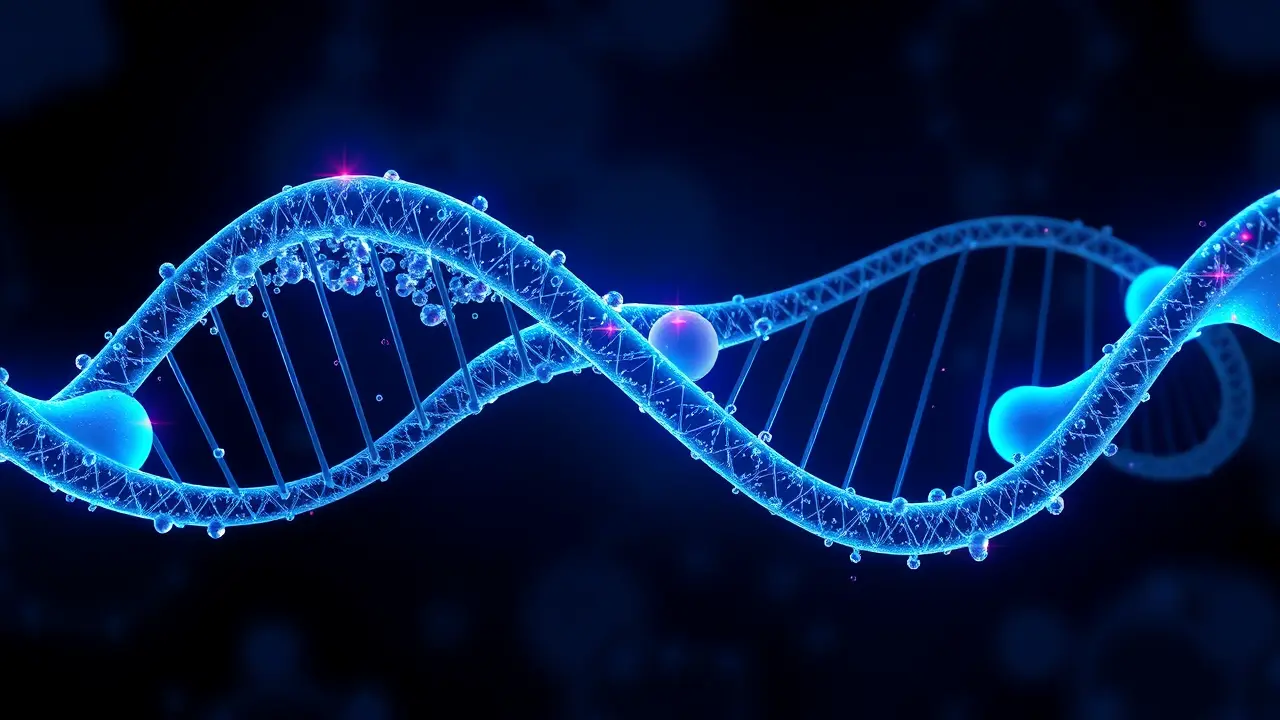
Scienceneuroscience
Scientists Identify Key Blood Molecule as Master Regulator of Aging and Longevity
KE
Kevin White
2 days ago7 min read
Researchers have uncovered a crucial biological regulator—a blood molecule known as CtBP2—that appears to function as a central conductor in the aging process. This discovery represents a significant shift in our understanding of how organisms age systemically, moving beyond isolated theories to identify a unified regulatory mechanism.The evidence reveals a clear correlation: individuals with lower levels of CtBP2 show signs of accelerated biological aging and poorer health outcomes, while those with higher concentrations are consistently represented among long-lived populations, suggesting CtBP2 could serve as a fundamental biomarker of biological youth. The implications are profound—a future blood test derived from this research could assess your body's true biological age, offering unprecedented insight into your cellular health and aging trajectory.This breakthrough was made possible through advanced proteomic screening and artificial intelligence, enabling scientists to decipher the complex biological patterns of human aging. CtBP2 functions as a transcriptional corepressor, governing networks of genes responsible for energy metabolism, cellular repair, and inflammation control—essentially coordinating how different bodily systems age in synchrony.Dr. Elena Rodriguez, a biogerontologist at the Institute for Advanced Biological Studies, notes, 'CtBP2 acts like an orchestra conductor ensuring all sections play in harmony.When levels drop, this coordination breaks down, accelerating systemic decline. ' The therapeutic potential is substantial, ranging from pharmaceutical interventions targeting CtBP2 activity to personalized lifestyle programs based on individual aging profiles.However, this advancement raises important ethical considerations regarding how society would handle knowledge of biological aging rates and potential disparities in access to anti-aging treatments. The biotechnology industry is already investing in CtBP2-based diagnostics and therapies, while regulatory agencies determine how to evaluate tests measuring biological age.This discovery may fundamentally reshape our understanding of age-related diseases, suggesting conditions like Alzheimer's, cardiovascular disease, and metabolic disorders might share common roots in regulatory failures centered around molecules like CtBP2. As research progresses, CtBP2 represents not just scientific progress but the potential to transform healthspan—making aging a modifiable process rather than an inevitable decline.
#featured
#aging
#longevity
#blood molecule
#CtBP2
#metabolism
#health biomarker
#research breakthrough
Stay Informed. Act Smarter.
Get weekly highlights, major headlines, and expert insights — then put your knowledge to work in our live prediction markets.
Related News
Comments
It’s quiet here...Start the conversation by leaving the first comment.
© 2025 Outpoll Service LTD. All rights reserved.
